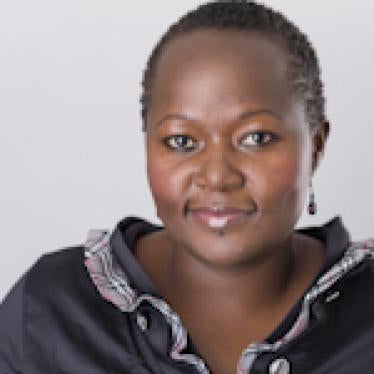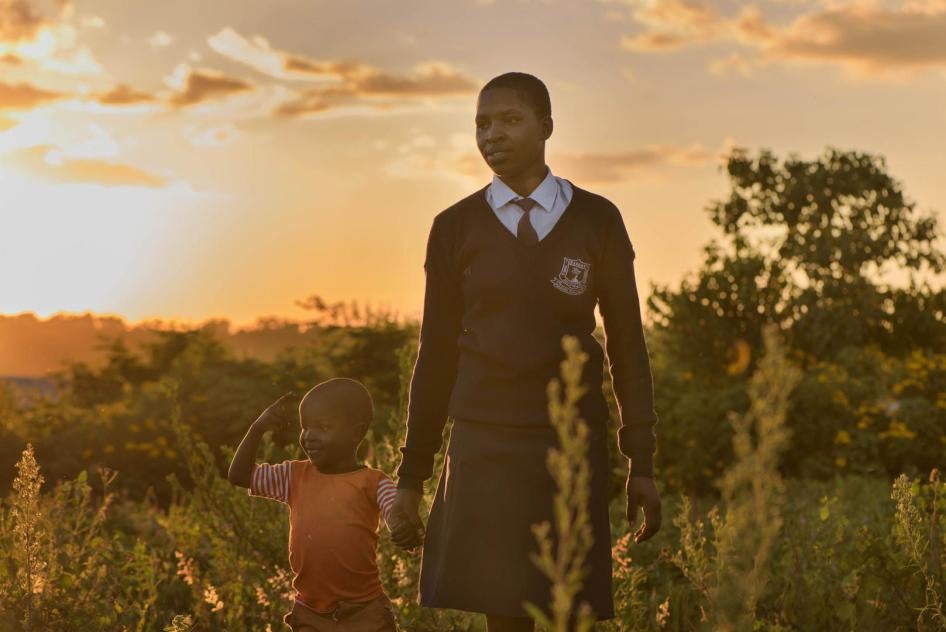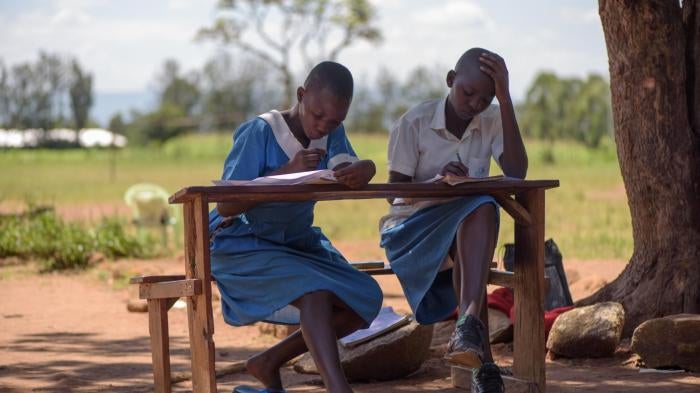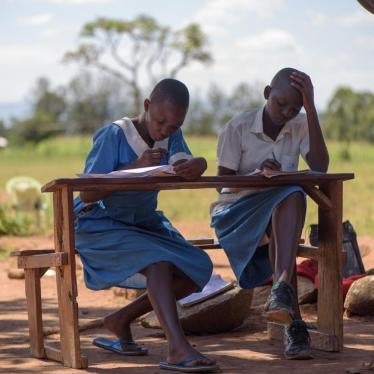In late 2018, Sierra Leone's First Lady, Fatima Bio, opened a national campaign "Hands Off Our Girls." Her campaign made big promises to reduce child marriages and teenage pregnancies in the country, in part to tackle the spike in teenage pregnancies following widespread rape during the Ebola crisis. Reflecting on this campaign, President Julius Maada Bio stated: "We have wasted a lot of time in restricting the potentials of women and girls."
In light of this important acknowledgment, his government senselessly adheres to a policy that intentionally wastes the potential of many thousands of girls who are expelled from school each year because they are pregnant - which also effects the number of girls who stay in secondary school in the country.
In Sierra Leone, like in Tanzania and many other African countries, one of the most often cited excuses for not letting pregnant girls stay in school is that they will "corrupt" other girls into pregnancy. But isolating and excluding pregnant girls from school will not stop teen pregnancies because "immorality" is not the cause.
These punitive approaches, which in Tanzania and elsewhere have led to harassment and even arrest of pregnant girls, only serve to stigmatize and disempower girls, and to perpetuate gender discrimination. The fact is that many teenage girls are vulnerable to becoming pregnant because of factors such as poverty, violence, exploitation, and lack of knowledge about sexuality. Government officials might be quick to blame some of the most vulnerable girls, but authorities are incredibly slow when it comes to tackling these key factors through smart policies and programs.
The stories of hundreds of girls whom we have interviewed stand in sharp contrast to the dominant narrative by authorities and others in a position of power, such as teachers, education staff, or politicians who condemn them.
When we've asked girls - pregnant or not - what they think about their peers' pregnancies and drop-outs, most have told us that seeing other pregnant girls drop out of school is enough of a deterrent. Girls can often see that their peers have to deal with heavy stigma as a result of pregnancy. Their families reject or insult them. Most struggle to raise a child when they are children themselves.
In Tanzania, we interviewed Sawadee - she chose this pseudonym - who was in the third grade of secondary school when she got pregnant. Her neighbor - an adult man - followed her for a few years. He used to give her small gifts, which she felt she had to accept. At first, she refused to have sex with him, but her friends advised her to accept the money he was offering, as she would be better off. She got pregnant the first time they had sex, when she was only 16. Her parents kicked her out of their home, and she was expelled from school. For years, she dreamed of becoming a nurse - but getting back into education was nearly impossible: Sawadee and her daughter suffered hardship. She could only find very precarious jobs. "When I failed to get money, me and my baby didn't get a meal," she told us. Girls understand that pregnancy could mean the end of their hard-gained efforts to get a secondary or university education. Like Sawadee, they know pregnancy can destroy their ambitions.
But many girls also tell us about the challenges they face at school, and in their communities, which contribute to their vulnerability. Many girls we have spoken with became pregnant because they were raped, sexually exploited in exchange for food, money or grades or coerced into sex by adults, including their own teachers, and at a worryingly high rate, by boys their age.
But many also get pregnant following a sexual relationship they consented to with boys - often students or others they know in their communities. The lack of sexual education - or even how to protect themselves - plays a part in this.
Education ministries have a great tool available to act and respond in an empowering way. Age-appropriate comprehensive sexuality education can help students understand sexuality and reproduction and how to protect themselves from pregnancy or sexually transmitted infections. But importantly, this education can help them recognize that they can use their right of consent to decide when to have sexual relationships, and understand that sexual exploitation and abuse are crimes and that no one should subject them to sexual violence. Yet, many African governments refuse to provide comprehensive sexuality education in schools. Where it is provided it is often substandard. Most provide a half-baked and often unscientific version that focuses on the biology of reproduction or a stigmatized approach to adolescent sexuality that does little to protect students.
African governments have a legal obligation to promote girls' rights to education without discrimination. Sierra Leone should immediately lift the ban and not just allow all girls access to education, but support them fully to return to school. The African Union should call on Sierra Leone, Tanzania and all African governments to safeguard all girls' potential, and stop the exclusion of pregnant girls from schools.










